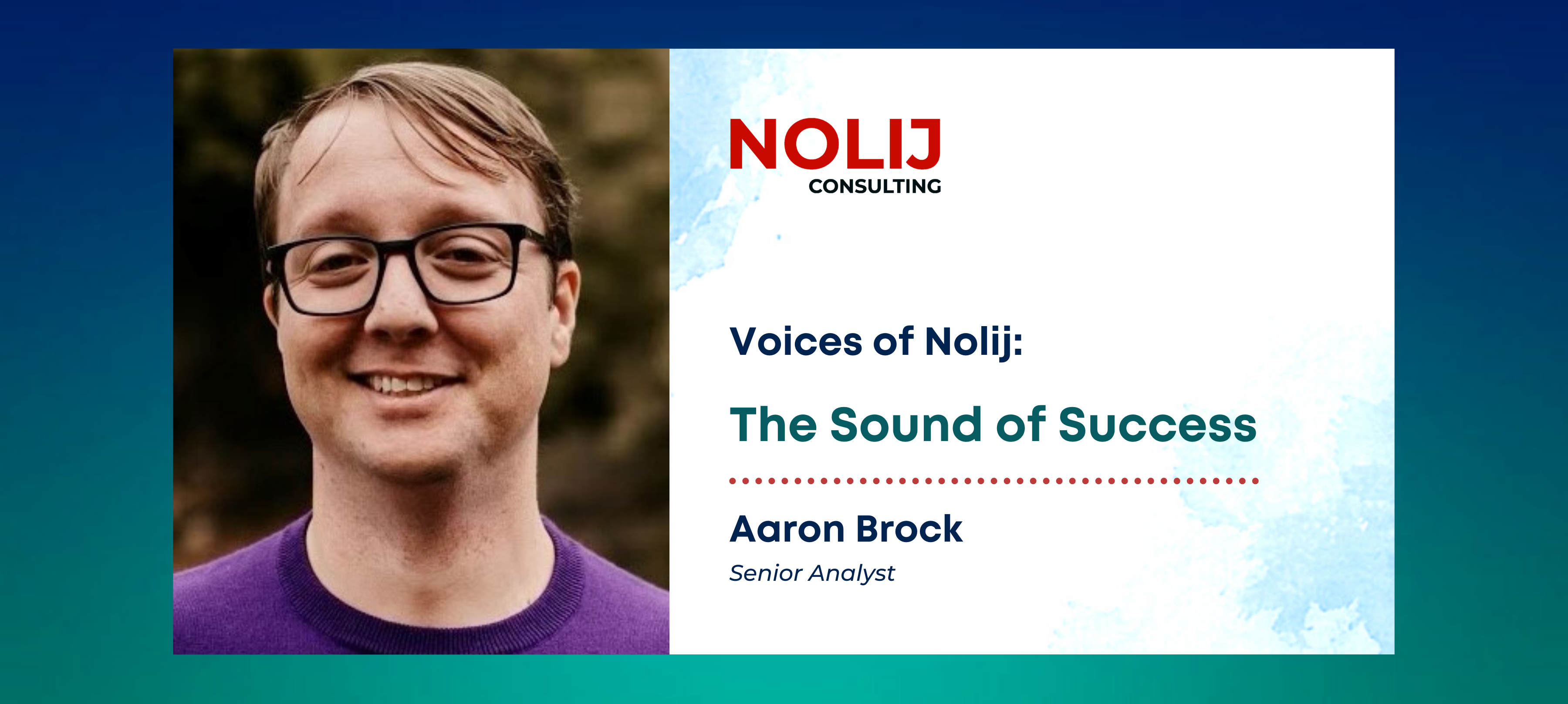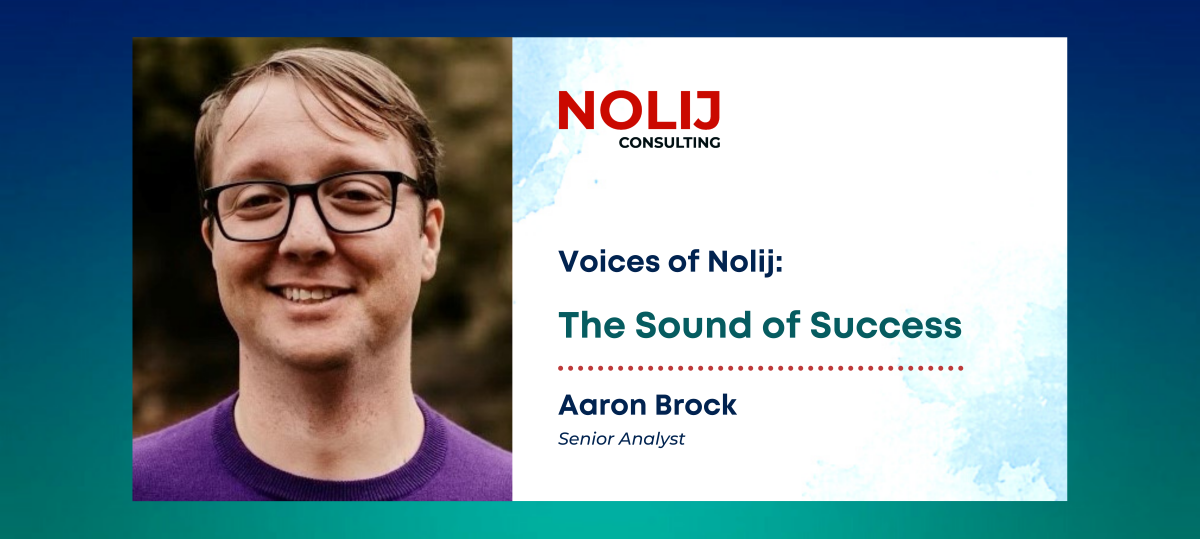
Aaron Brock, The Sound of Success
As the nation’s largest minority — comprising almost 50 million individuals — people with disabilities contribute to workplace diversity. They help businesses address challenges through varied perspectives and enhance their competitive edge. At Nolij, we work to ensure people with different skills, abilities and communication styles are integrated into our workforce and customer base.
Aaron Brock, a senior analyst, is a leader in Nolij Consulting’s Development Test and Evaluation team and supports our IT and cybersecurity strategies. Oh yeah, he also happens to be deaf.
Were you born deaf? How did you learn to navigate school and the world without your hearing at an early age?
“I became deaf at two years old from spinal meningitis which damaged my vestibular nerves that impaired my ability to hear sound. I was blessed to learn sign language at a very young age and attended ASL-based schools. I attended the Model Secondary School for the Deaf. I received my Bachelor of Science in Computer Science from Gallaudet University, the only liberal arts institution in the world for the deaf and hard of hearing. After graduating from college, I went into Defense Health Information Management System.”
What are some of the daily challenges you encounter at work, and how do you deal with them?
“As a deaf person, I have never felt disabled. I have gained so much from my deafness, much more than I’ve ‘lost.’ We, as deaf people, call it ‘deaf gain’ or the ability to communicate without sound. Communication is always a challenge in the workplace because of meetings. In a sound-driven culture, people are often talking over each other. In many respects, deaf people are better communicators because we talk one at a time—sequentially. We can stay focused on the interaction without being disconnected. Deaf communication culture allows me to educate others on an alternate form of communication because people often forget the barrier that exists between us – my deafness or their inability to sign.”
How did you become interested in IT?
“My father influenced my interest in Information Technology. He worked as an engineer for AT&T and always brought his work home. I was around computers before it was cool. Along the way, I met a software developer who further drove my interest in computer science and software engineering. My initial work experience in IT was in Video Relay Service that provides ASL interpreting services for the deaf. Eleven years later, Nolij has expanded my technical skills by entrusting me to lead key projects. My colleagues are very accommodating– I’m lucky to be working with such a great group of people.”
What are your interests, hobbies, aspirations?
“I enjoy cycling and playing video games. I am engaged and have two children and four cats. I volunteer at the Metro Washington Association for the DeafBlind doing some web development and IT support.”
